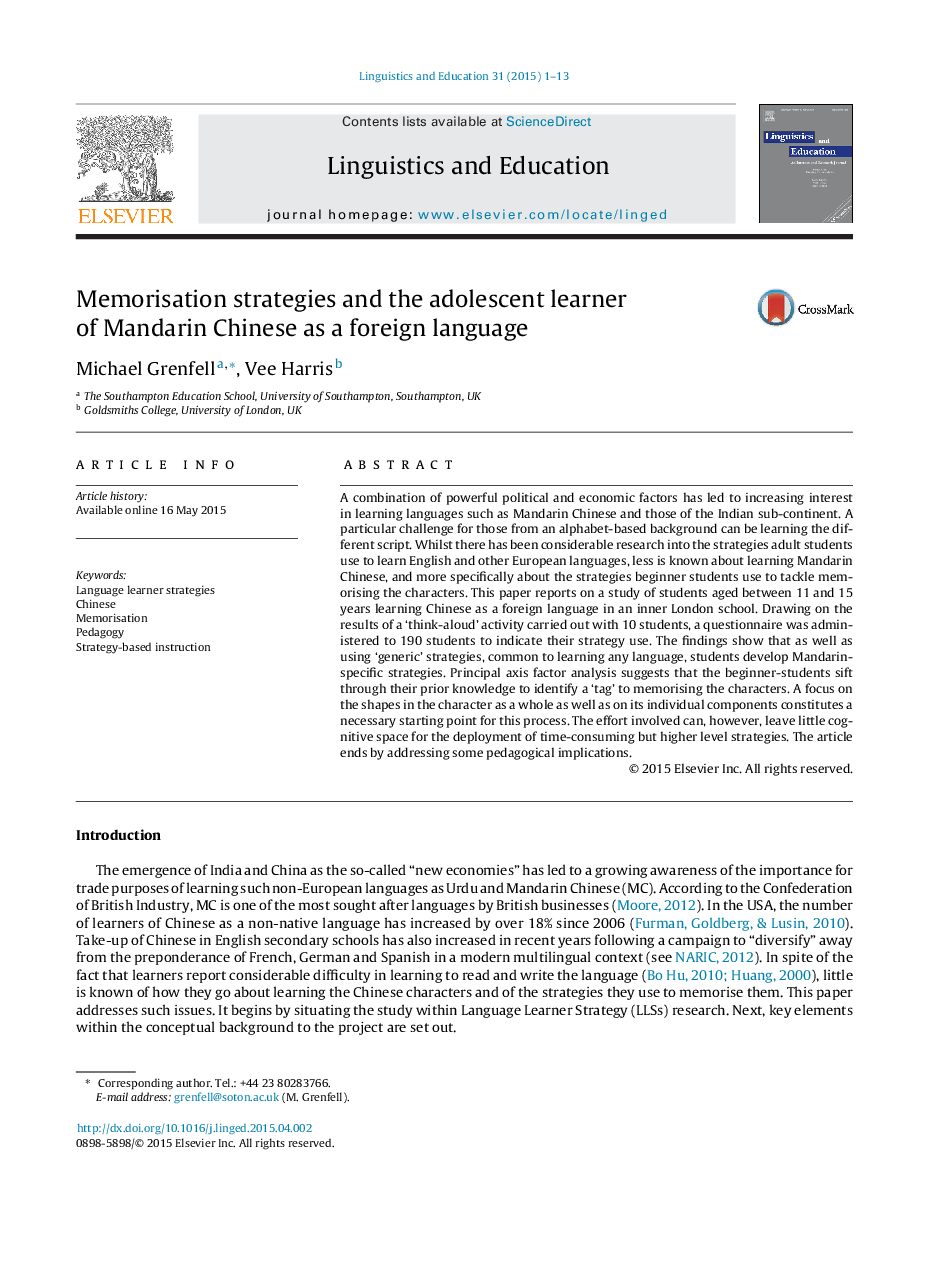| Article ID | Journal | Published Year | Pages | File Type |
|---|---|---|---|---|
| 366090 | Linguistics and Education | 2015 | 13 Pages |
•Beginner students of Chinese develop strategies to help memorise the characters.•Some strategies are common to learning any language but some are unique to Chinese.•Students find a ‘way in’ by applying prior knowledge to the characters.•Teachers benefit from knowing about the strategies used.•Strategy Instruction can help students use strategies effectively.
A combination of powerful political and economic factors has led to increasing interest in learning languages such as Mandarin Chinese and those of the Indian sub-continent. A particular challenge for those from an alphabet-based background can be learning the different script. Whilst there has been considerable research into the strategies adult students use to learn English and other European languages, less is known about learning Mandarin Chinese, and more specifically about the strategies beginner students use to tackle memorising the characters. This paper reports on a study of students aged between 11 and 15 years learning Chinese as a foreign language in an inner London school. Drawing on the results of a ‘think-aloud’ activity carried out with 10 students, a questionnaire was administered to 190 students to indicate their strategy use. The findings show that as well as using ‘generic’ strategies, common to learning any language, students develop Mandarin-specific strategies. Principal axis factor analysis suggests that the beginner-students sift through their prior knowledge to identify a ‘tag’ to memorising the characters. A focus on the shapes in the character as a whole as well as on its individual components constitutes a necessary starting point for this process. The effort involved can, however, leave little cognitive space for the deployment of time-consuming but higher level strategies. The article ends by addressing some pedagogical implications.
